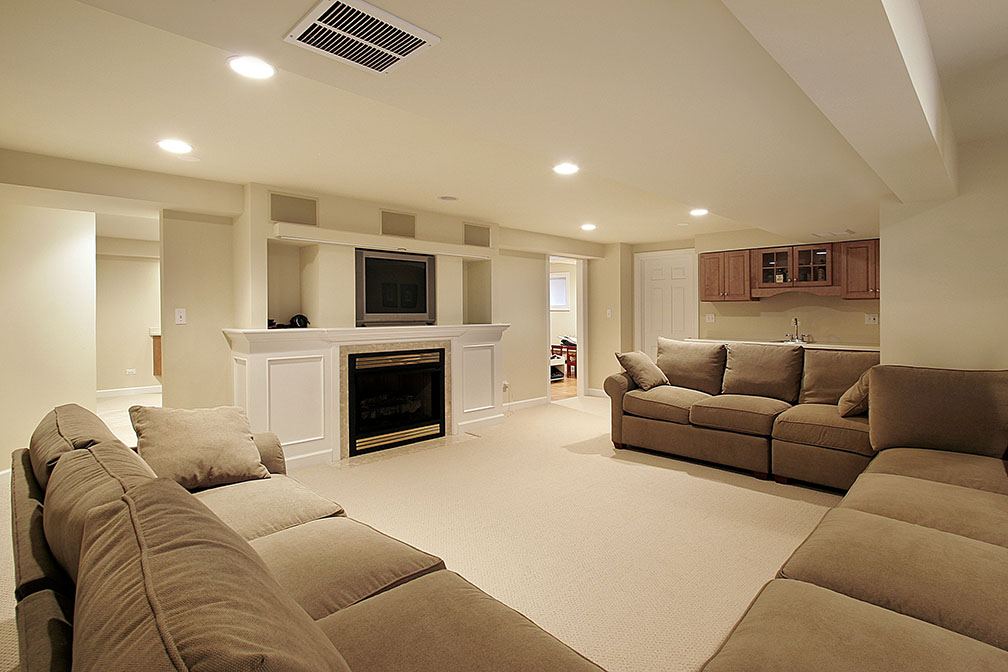 Do you have an empty basement or separated suite in your home? If you have a suite sitting empty, you are missing out on collecting some extra monthly income in the form of rent. Let’s take a look at a quick four-step process that will help you find the perfect tenant to rent out your basement suite.
Do you have an empty basement or separated suite in your home? If you have a suite sitting empty, you are missing out on collecting some extra monthly income in the form of rent. Let’s take a look at a quick four-step process that will help you find the perfect tenant to rent out your basement suite.
Step 1: Play By The Rules
Is this your first time renting out a home or suite to a tenant? If so, you will want to do a bit of research first. Read up on Fair Housing Rules and other regulations as these will inform you of your responsibilities as a landlord. Keep in mind that you cannot discriminate in any way when it comes to race, religion, gender, family status or disability. Anyone who applies must be given a fair chance.
Step 2: Be Specific In Your Advertising
When you place a rental listing, be as specific as possible in what you are looking for in a tenant. If you are a single, quiet person, you may want someone similar as you will be compatible. Conversely, if you are a young couple, you may clash with a retired senior or someone older. Be as specific as possible but remember that you cannot be discriminatory.
Step 3: Meet Potential Tenants In Person
Be sure to take the time to meet with every short-listed applicant in person. If you are not comfortable with having so many strangers over to your home, consider meeting at a local coffee shop. An in-person meeting will allow you to visually assess the person and determine if your personalities are a fit for living in the same home.
Step 4: Don’t Skip The Checks
Finally, don’t take any shortcuts when performing background, credit and other checks. Ask your tenant for at least one or two references that you can call to verify their rental history. Investing in a credit check will help to assess their risk of missing monthly rent payments. And if necessary, a criminal records check can let you know if they have been in trouble with the law.
As long as you are well-prepared and diligent, finding a suitable tenant for your basement suite can be a painless process. To learn more about mortgage products are perfect for rentals, contact us today. Our mortgage team will be happy to help you!
 You’ve scoured the new home listings, been to all the open houses and have finally found the home of your dreams. It is now time to draft an offer and begin the negotiation process. Below we’ll share four mistakes that you will want to avoid when making an offer on your dream home.
You’ve scoured the new home listings, been to all the open houses and have finally found the home of your dreams. It is now time to draft an offer and begin the negotiation process. Below we’ll share four mistakes that you will want to avoid when making an offer on your dream home. Whether you’re just out of college, recently married or simply haven’t jumped into the market yet, buying your first home is an exciting prospect. It can also be an expensive one, which is why most people will take out a mortgage to help finance the cost.
Whether you’re just out of college, recently married or simply haven’t jumped into the market yet, buying your first home is an exciting prospect. It can also be an expensive one, which is why most people will take out a mortgage to help finance the cost. One of the stresses of moving to a new area is giving up the familiarity that you have with your old neighbors and starting from scratch. Whether you’ve just moved to a different locale or you’re planning to relocate in the near future, there are some easy ways that you can make a home of your new neighborhood right from the start.
One of the stresses of moving to a new area is giving up the familiarity that you have with your old neighbors and starting from scratch. Whether you’ve just moved to a different locale or you’re planning to relocate in the near future, there are some easy ways that you can make a home of your new neighborhood right from the start. Are you thinking of buying a new home this spring or summer? If so, you’re not alone. Many thousands of individuals and families alike will become homeowners this year. Whether you’re a first-time buyer or a seasoned veteran of the housing market, you probably know there are significant choices to make. One of the big decisions you will have to ponder is how much you want to invest in your down payment.
Are you thinking of buying a new home this spring or summer? If so, you’re not alone. Many thousands of individuals and families alike will become homeowners this year. Whether you’re a first-time buyer or a seasoned veteran of the housing market, you probably know there are significant choices to make. One of the big decisions you will have to ponder is how much you want to invest in your down payment. If you are thinking of buying a condominium or a home that is part of a planned community, you have likely come across the term “homeowners’ association” or HOA. In short, the HOA is a coalition of local homeowners who have banded together to manage the needs of the local community. Let’s explore the concept of the homeowners’ association, why they charge fees and what you can expect from your HOA if you buy a home that is part of one.
If you are thinking of buying a condominium or a home that is part of a planned community, you have likely come across the term “homeowners’ association” or HOA. In short, the HOA is a coalition of local homeowners who have banded together to manage the needs of the local community. Let’s explore the concept of the homeowners’ association, why they charge fees and what you can expect from your HOA if you buy a home that is part of one.